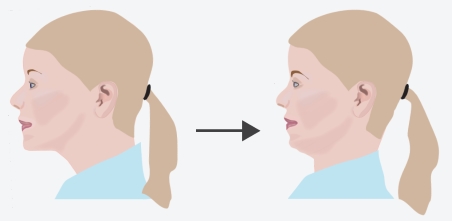Neck pain Mamae ā-kakī
Many people suffer from neck pain, and it can have a variety of causes. The most common are injury and arthritis.
Symptoms of neck pain
Along with pain in your neck you may have reduced movement to your neck. Moving may make the pain worse.
The pain may spread to your shoulder blade, shoulder, arm or your head.
You may also feel numbness or tingling in part of your arm or hand.
You should seek urgent medical attention if you:
- have flu-like symptoms along with a stiff painful neck
- have severe neck pain after an injury, such as a motor vehicle accident, diving accident or fall
- lose function in your arm such as weakness or clumsiness or you have persistent loss of feeling
- have trouble walking or passing wee (urine).
Diagnosing neck pain
Your healthcare provider will ask you about your neck pain and examine you.
If your neck pain does not get better quickly or your healthcare provider is concerned, you might need to have an x-ray or scan such as an MRI scan.
Self care for neck pain
Exercises
You can help relieve your neck pain by gently moving it often during the day. Start gentle movement as soon as possible. This will help to reduce pain and regain full movement. Most people find the chin tuck (or retraction) exercise gives them the best relief.
You can do this simple exercise while sitting down. Gently slide your head backwards while looking forwards, keeping your chin level with the floor. Imagine a spider dangling down in front of your face and moving your head out of its way.

Chin tuck exercise for relieving neck pain
Sitting posture
Good sitting posture is important. If you sit correctly, your neck will not be strained, and you will have less pain.
The key to good neck posture is having support in your lower back. Sit up as straight as you can and place some support, like a rolled towel, in the small of your back.
When you are looking at your smartphone or tablet, make sure you hold it up in front of you to avoid bending your head forward for long periods.
At your desktop computer, make sure the top of its screen is at your eye level. You might need to bring the screen forward on your desk to avoid poking your head forward to read it.
You might also find it helpful have your laptop screen at eye level and to use an external keyboard. You can buy a laptop stand or put your laptop on a stack of books or box to raise it to eye level.
Pain medication
As well as exercise and taking care with your posture, you may want to take some pain relief. You may find the pain medication does not take the neck pain away completely, but it can reduce the pain.
Check with your healthcare provider or pharmacist on what pain relief medicines are best for you.
Pain relief medicines for adults
Sleeping
If you are waking up during the night with neck pain, or notice your pain is worse in the morning, you may find it helpful to change your pillow. When you are lying on your side, your neck should be in a straight line from your back to your head. Make sure your pillow is the right thickness — too thick or thin and your neck will be on an angle which will get uncomfortable.
Work
If you have been off work with a sore neck, get back to work as soon as possible. You do not need to wait for the pain to go away. Returning to work (or staying at work if you can) generally helps to reduce your pain by keeping you active.
If you are worried about your work, talk to your employer and treatment provider about what you can and cannot do. Some people need to gradually ease back into their usual work tasks, perhaps doing fewer hours and not doing physical tasks like heavy lifting or twisting or sitting for too long.
ACC can also help you get back to work if you are having problems returning to your normal duties.
The Accident Compensation Corporation (ACC) is a government agency that helps pay for treatment if you are injured in an accident.
The ACC provides comprehensive, no-fault personal injury cover for all residents and visitors to Aotearoa New Zealand. This means if you are hurt in an accident, ACC can help no matter who caused the accident.
If you have an accident and need emergency care in a hospital, it will be covered by ACC.
ACC usually pays some of the other medical costs if you have an accident, like surgery, physiotherapy and medicines. ACC may also be able to cover some loss of earnings resulting from an accident.
I'm injured — The Accident Compensation Corporation
Getting help for neck pain
If you do all the things mentioned above, your neck pain should start getting better within a week, even if it does not go away completely.
If it has not started getting better, or if your pain is getting worse you should see your healthcare provider, chiropractor, osteopath or physiotherapist.
You can expect whichever healthcare professional you choose to thoroughly assess you, advise on how you can help yourself, and give you an individual treatment plan.